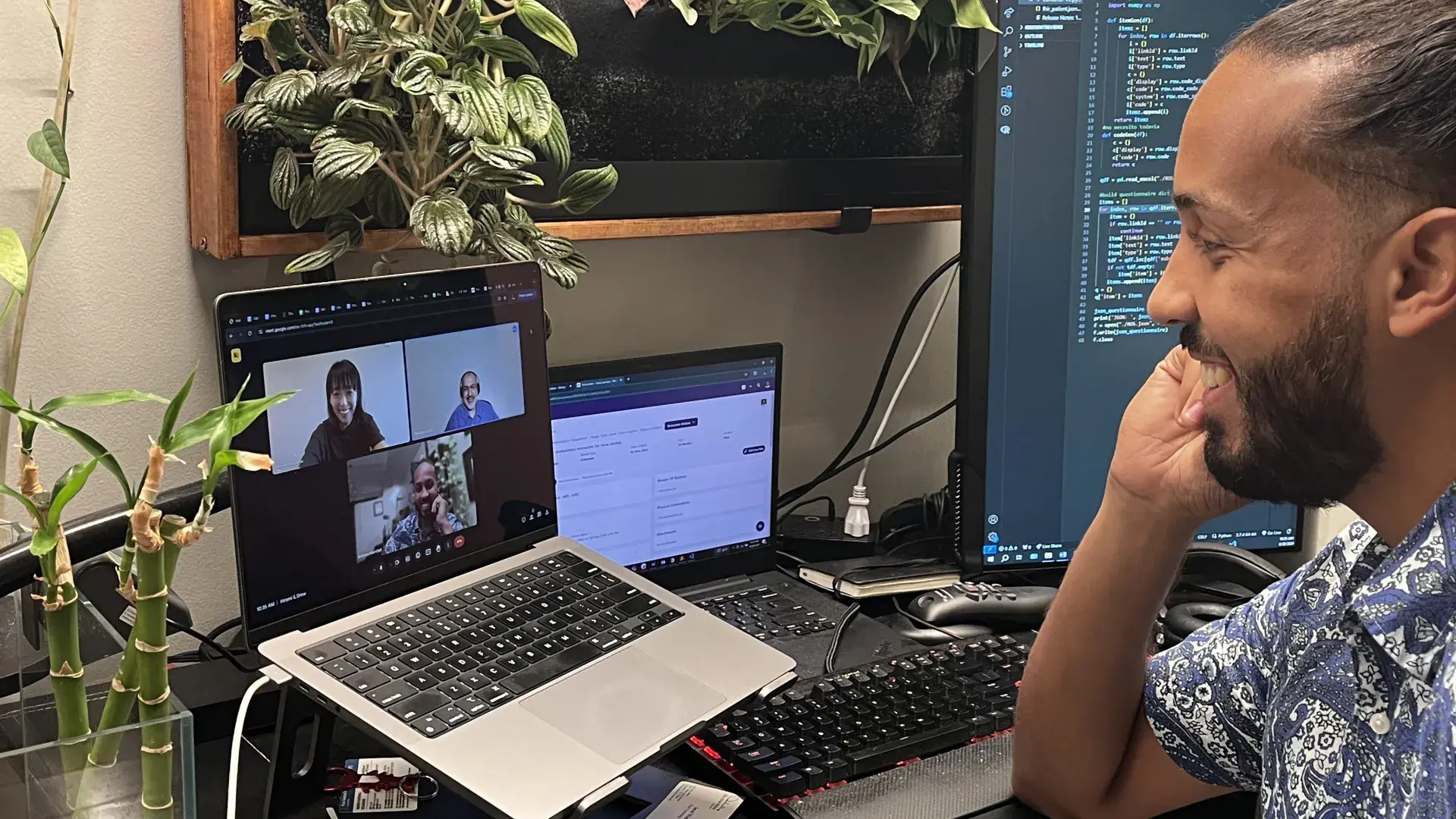
A.I. breakthrough previously "untapped, uncategorized" data from electronic health records could benefit research, public health initiatives, following Data Analytics student’s collaboration with tech company Medial Health
What if there was a way to sort clinicians’ disorganized notes on patients into data that researchers and insurance providers could use? An artificial intelligence system designed to maximize the data found in electronic health records (EHRs) may hit the market later this year, thanks to developers at Medial Health, a technology company that’s utilizing MGH Institute students to help advance AI-powered health solutions.
“One of the biggest problems to solve in electronic health records and record-keeping is, how do you take unstructured data, which is just text that's written, and turn it into structured data,” said Dr. Andrew Marshall, Head of Innovation for Medial Health who is supervising students from the Institute during their cooperative education program at the company.
Unstructured data is free text that’s not labeled or separated by category, which is “hard to use for research,” according to Marshall. "Maybe you made a grocery list, and you split it into vegetables, dairy, and poultry. You could categorize each of those things, and you could say at the end of the year, ‘I spent this much money on dairy, I spent this much money on vegetables’ because all of that would be structured data. Now, if it's unstructured data, then you need a human to sit there and count all these things manually.”
“Computers, statisticians, public health officials, and even billing and insurance companies like structured data, but humans prefer to operate within the realm of unstructured data,” Marshall continued. “So, the question is, how do you take a clinician's note and turn it into the structured data that can be used for research and billing and public health initiatives?”
Enter Hiromi Hiroyama, a second-year student in the Institute’s Master of Science in Healthcare Data Analytics program, who Dr. Pedram Safari assigned to work at Medial Health as part of his Applications of Analytics course, a six-credit class that challenges students to apply what they’re learning in the classroom to support organizations like Health Tech Without Borders and Vot-ER.
Marshall asked Hiroyama to help Medial Health use natural language processing (NLP) — a branch of artificial intelligence that enables platforms like ChatGPT to understand and replicate human language — to organize notes that practitioners write about their patients.
Some clinicians take notes by stream of consciousness, describing a patient’s age, symptoms, and medication allergies all in one list. By training a machine learning model to recognize the relationships between these independent objects, Hiroyama is helping Medial Health organize EHR data that otherwise goes “basically untapped, uncategorized, and probably could be used to be building better models to help patients in the future,” Marshall said.
“At Medial Health, we understand the critical role that both structured and unstructured data play in healthcare,” said company founder and CEO Stephen Felix. “Unstructured data, such as doctor’s notes, clinical narratives, and patient conversations, often contain valuable insights that are difficult to analyze in their raw form. To address this, we are leveraging AI technology to convert unstructured data into structured formats.
“This process will allow us to extract key information, standardize it, and make it usable for analysis, research, and decision-making. By transforming unstructured data into structured data, we are enabling healthcare providers to unlock deeper insights, improve patient outcomes, and enhance the precision of care, all while ensuring that vital information is being made easily accessible and actionable within our EHR systems.”
“Medial Health’s vision is allowing people to type in the way that they would normally type free text, capturing the data without slowing the clinician down,” Marshall said. “That’s a quality-of-life improvement for the clinician, while also simultaneously providing a quality-of-life improvement for the government or the public health people who are looking at the data.”
Hiroyama meets weekly with Medial Health’s team, calling in virtually from her home in Alabama to discuss projects with team members located in Boston, Brooklyn, and Felix’s home country of Saint Lucia.
She discusses progress she’s made and roadblocks she’s facing, “iteratively” improving every week, Marshall says. Beyond developing a way to organize EHRs into usable data, he’s hopeful that Hiroyama may compile her project findings into a research paper she could publish in the near future.
“I have a background in pharmacy, and I want to pursue my PhD,” Hiroyama said. “Being able to apply what I’ve learned in class to a real company helps me understand what I want to do next in my career after graduation.”
The benefits of this partnership between Medial Health and the MGH Institute are mutual, says Marshall. Both an ER doctor and data scientist, he appreciates having the chance to collaborate with students who understand healthcare and informatics.
“Having the ability to talk to students who have real world experience, who are already health professionals and want to take the things that they're learning in real time and apply them to the real world, is really awesome for us,” Marshall said. “It's also a really beneficial experience for the students because that feedback loop between when you've learned something on paper to putting it into practice is much shorter and can really reinforce the learning that they've had in the data analytics classes.”
Do you have a story the Office of Strategic Communications should know about? If so, let us know.
